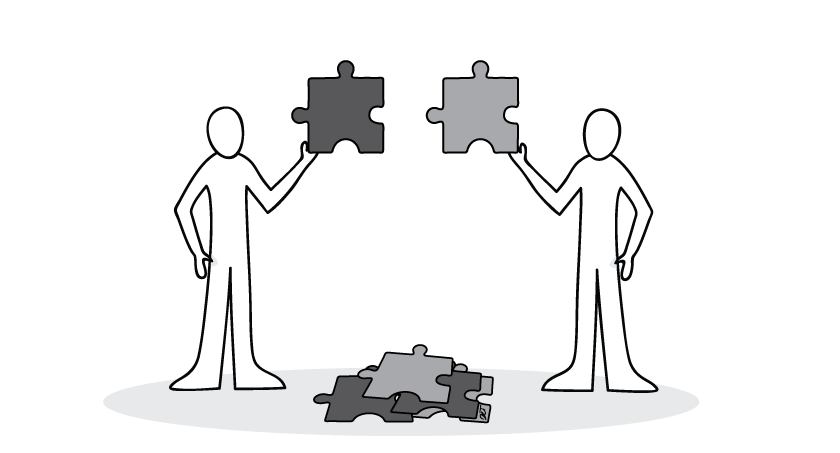3 Essential Qualities of an Effective Team

As a consultant, I can’t tell you how many times I’ve heard our clients say when we start working with them that they have world-calibre individuals on their team, but they are not operating as one team, and that’s a big missed opportunity.
We all know how important teamwork is to success. We’ve heard this repeatedly since grade school. But simply promoting teamwork and taking steps to create a strong team are two different things. It’s not enough to tell your team they should work together. You have to train them together as a team and develop a language they can use among themselves to get in alignment and enable high performance.
The process, however, is much easier said than done if this is not your area of expertise. A team is filled with different personalities, some of which may clash, unintentionally. Add in different languages, cultural backgrounds, and different perspectives, and that leaves many openings for misunderstandings.
How do you create an environment in which people can not only work together but actually unleash the collective power?
My firm and I developed a workshop that gets to the heart of harnessing the power of a team, which is delivered over three days. So while the principles that follow are not going to solve and answer everything, they are a great place to start to move the performance needle upward. Note that in giving this advice, I’m assuming you already have highly qualified people on your team.
1. Trust among team members is a foundational operating system
There’s no denying that trust is huge when you’re building a team. In fact, it’s critical. Employees put in their best efforts in high-trust environments. Why? Because trusting your teammates and achieving goals together can bring feelings of pride, confidence, and motivation.
High levels of trust can even lead to out-of-the-box thinking and risk-taking, which are two things that carry the potential to take your team places it’s never been, to reach heights it’s never reached. Collaborating efficiently, sharing information willingly, and growing from one’s mistakes are all things teams that truly prioritise trust do.
2. You are all aligned on and bought into the company’s created future
When we first start working with companies, 97 percent of the time, the senior team members discover that they are not aligned on their future. Crazy, right? You would think since you are on the same team and there’s daily communication, the team should be aligned. That would be great, but it seldom happens.
So how can you get key members on the same page? First, you can slow things down. Intentionally organise multiple work sessions in which you review the past and how the company got to where it is today. Allow people to openly discuss what’s working and not working in the business.
Then once everything is out in the open, allow the team to speculate what would be off the charts to accomplish and align on that created future. It’s going to take lots of teasing out, so be patient through this process. It’s important that team members’ concerns and questions are addressed before you move on.
To give you an idea, we do this process with clients over a six-day, 10-hours-a-day period and the outcome is typically spectacular, so give yourself time to deep dive into this discussion.
3. The team’s communication is dialled-in
In a team, there can’t be high performance without a shared language that generates coordinated actions. What do I mean by this?
Where most people go wrong is when they think that simply talking to someone or telling someone something is sufficient to produce a particular outcome. It’s not. You need to develop a common language people understand and align on. But, more important, you need to put in place certain practices to streamline and support the execution once discussions conclude.
Frequent check-ins with your teammates, for instance, are key. Phrases like, “What did you take away from this discussion?” “What are you going to do by when?” “Here’s what I’m going to do by this time … ” all promote clear, concise communication that leaves little room for misunderstanding. Focus on building healthy practices that ensure the team’s communication strategy is straightforward and alignment gets realised.
High-performance cultures and teams become enabled when trust, alignment, and effective communication are core operating principles and deeply embedded in the culture. Teams that possess these things don’t just perform better.
They live better too. Given the correlation between job satisfaction and quality of life, these aren’t the kind of improvements you should wait on. You can start building a stronger team now.
Author: Tanya Prive
Source: https://www.inc.com/tanya-prive/three-essential-qualities-of-an-effective-team.html




